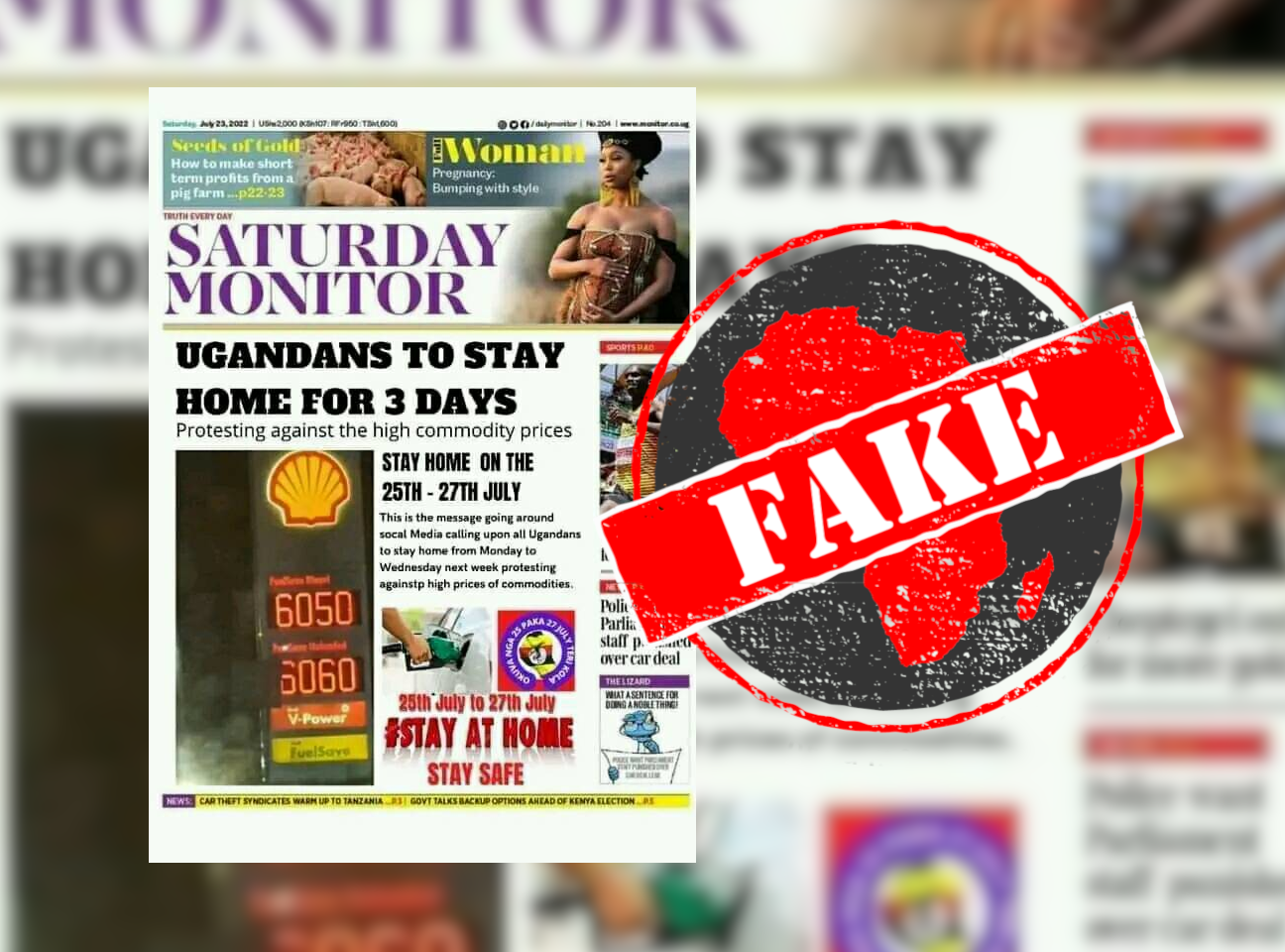“UGANDANS TO STAY HOME FOR 3 DAYS,” reads the headline of what appears to be the front page of Uganda’s Saturday Monitor, circulating on Facebook in July 2022.
The Saturday Monitor is a weekend edition of the Daily Monitor, a reputable independent newspaper.
Text below the headline adds: “Protesting against the high commodity prices. STAY HOME ON THE 25TH – 27TH JULY.” The page is dated 23 July.
Some Ugandans have been campaigning for a work stayaway and other protests against the high cost of living. In July, a litre of petrol was selling for 6,590 Ugandan shillings (USh), and a litre of diesel going for USh6,390. This is an increase of about USh3,600 just this year.
But the country’s deputy police chief, Maj-Gen Tumusiime Katsigazi, has warned Ugandans against demonstrating.
Is the front page authentic?

‘Treat it with the contempt it deserves’
There are signs it is not. These include spelling errors such as “Socal” instead of social and “againstp” instead of against.
And on 24 July the Daily Monitor posted the front page on its verified Facebook account, with the words “FAKE NEWS ALERT” written across it.
The post reads: “Please disregard this fake Saturday Monitor cover and treat it with the contempt it deserves. Beware of those using social media to spread #FakeNews.”
The front page doing the rounds on social media has been doctored.
Republish our content for free
For publishers: what to do if your post is rated false
A fact-checker has rated your Facebook or Instagram post as “false”, “altered”, “partly false” or “missing context”. This could have serious consequences. What do you do?
Click on our guide for the steps you should follow.
Publishers guideAfrica Check teams up with Facebook
Africa Check is a partner in Meta's third-party fact-checking programme to help stop the spread of false information on social media.
The content we rate as “false” will be downgraded on Facebook and Instagram. This means fewer people will see it.
You can also help identify false information on Facebook. This guide explains how.


Add new comment